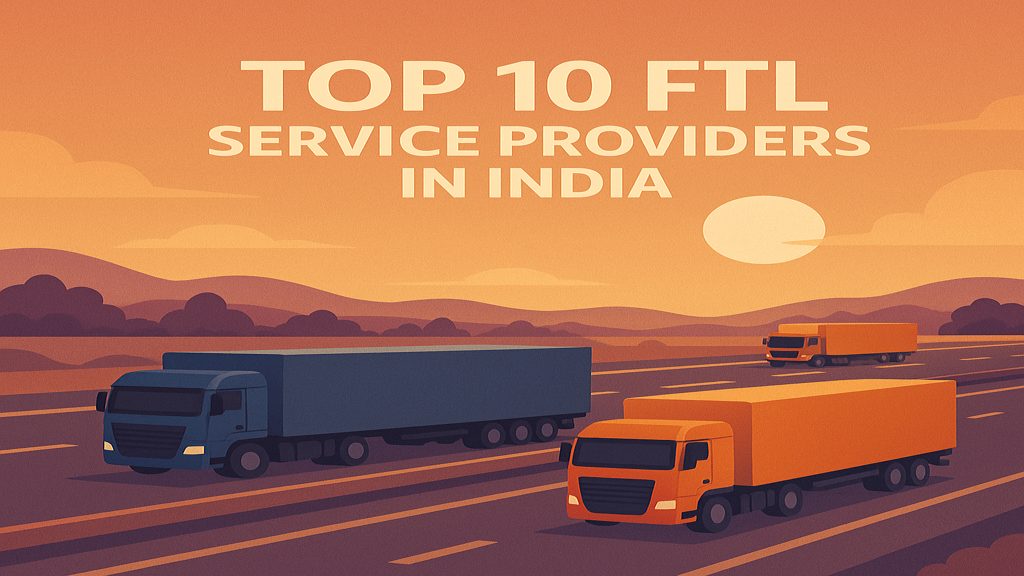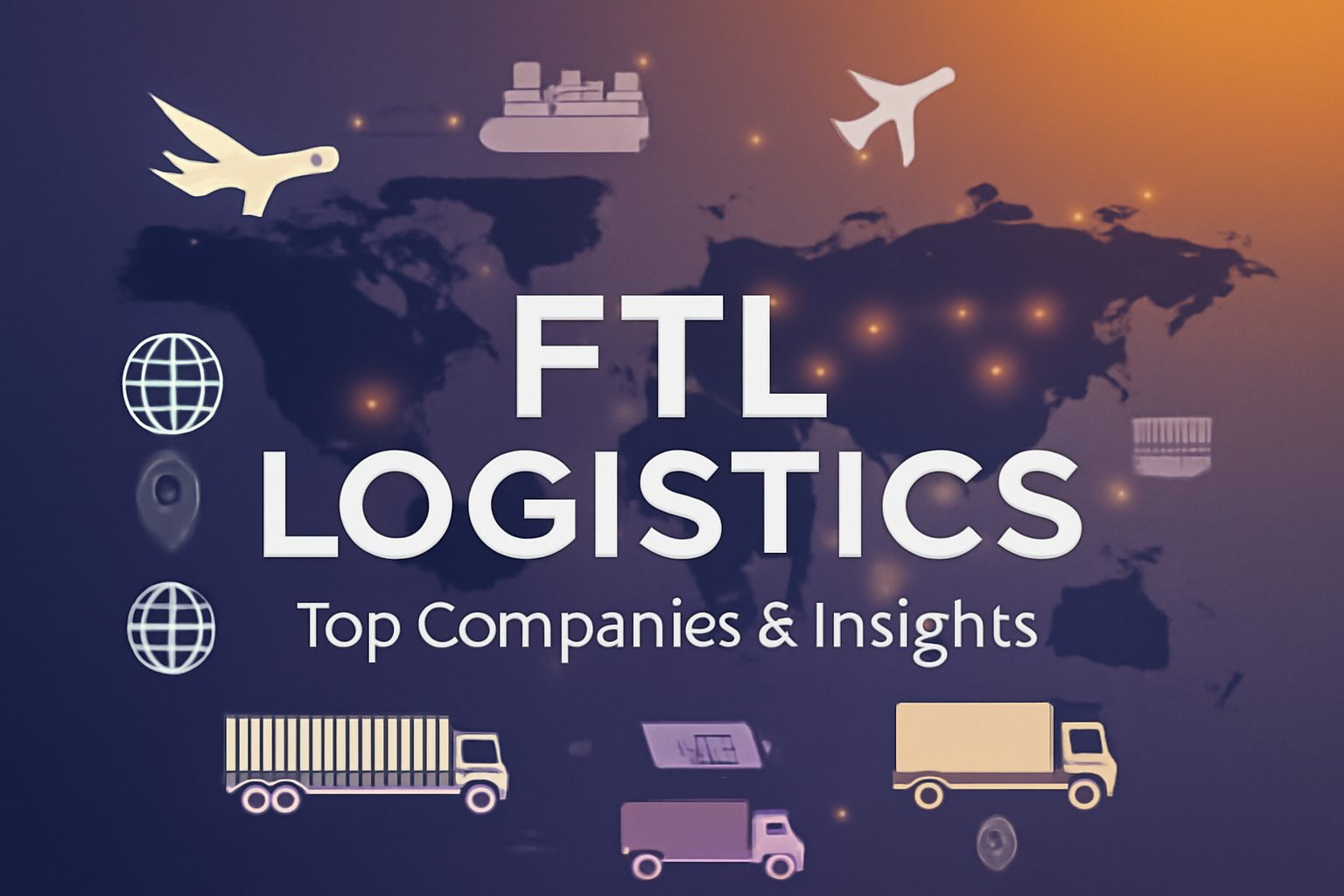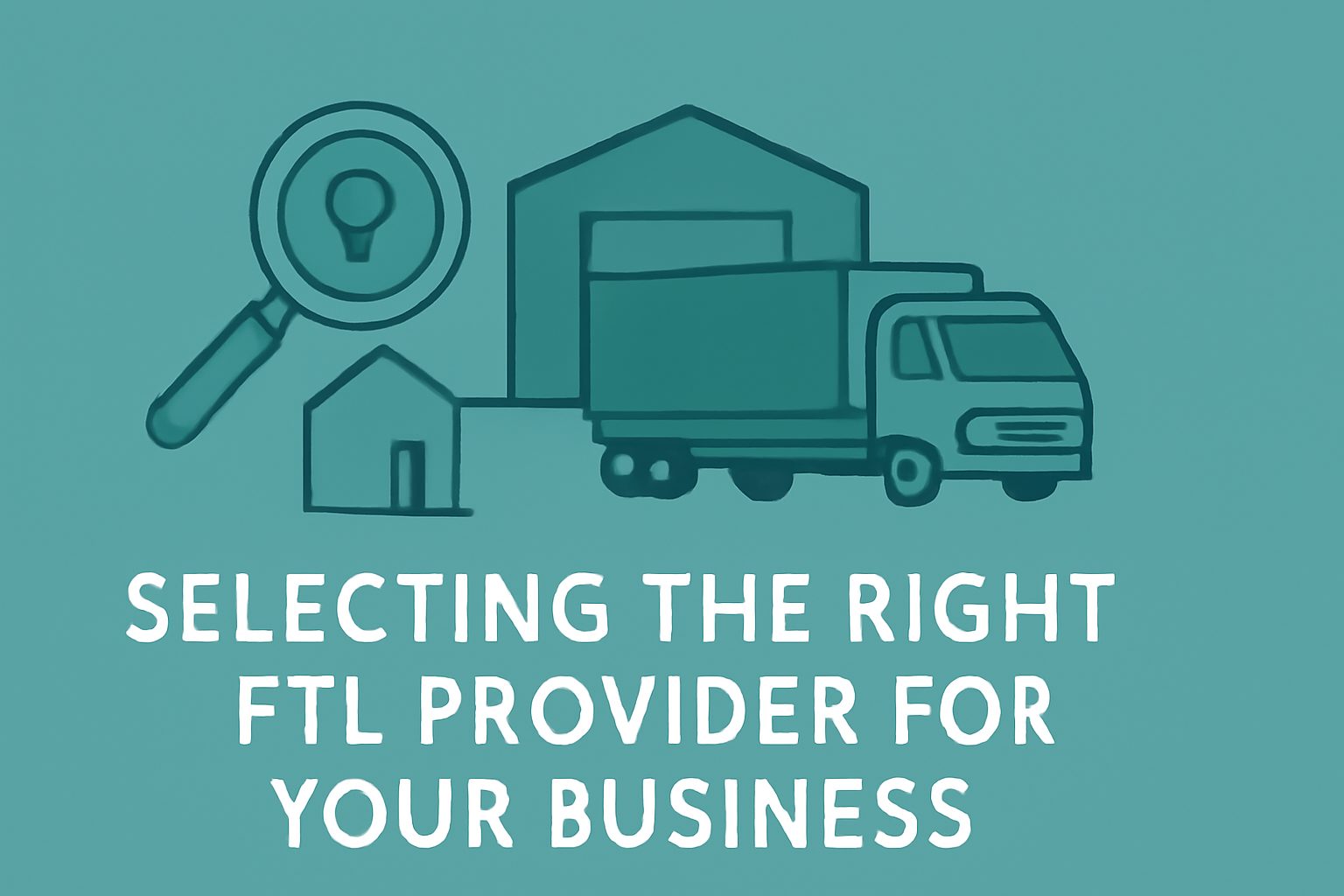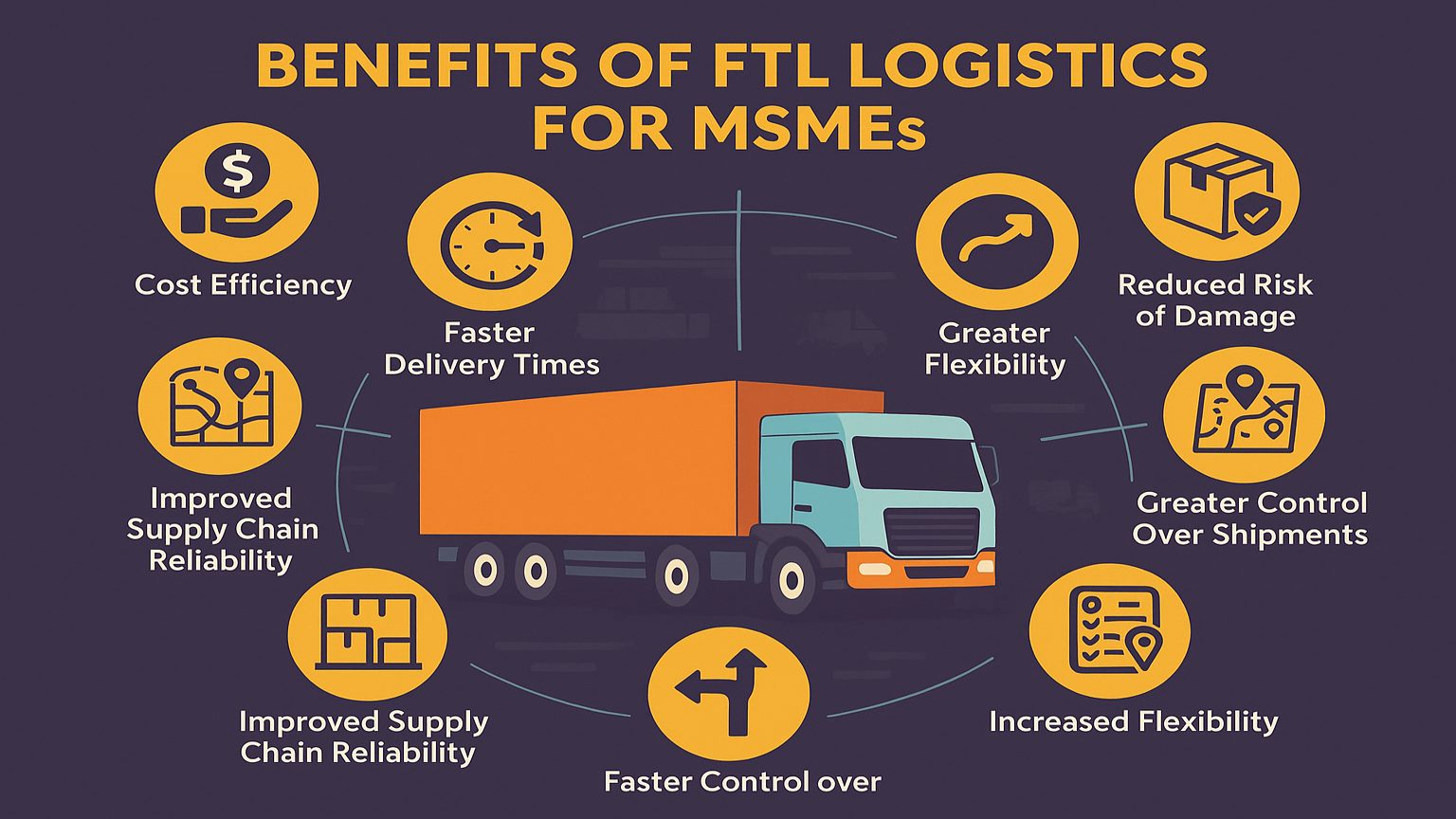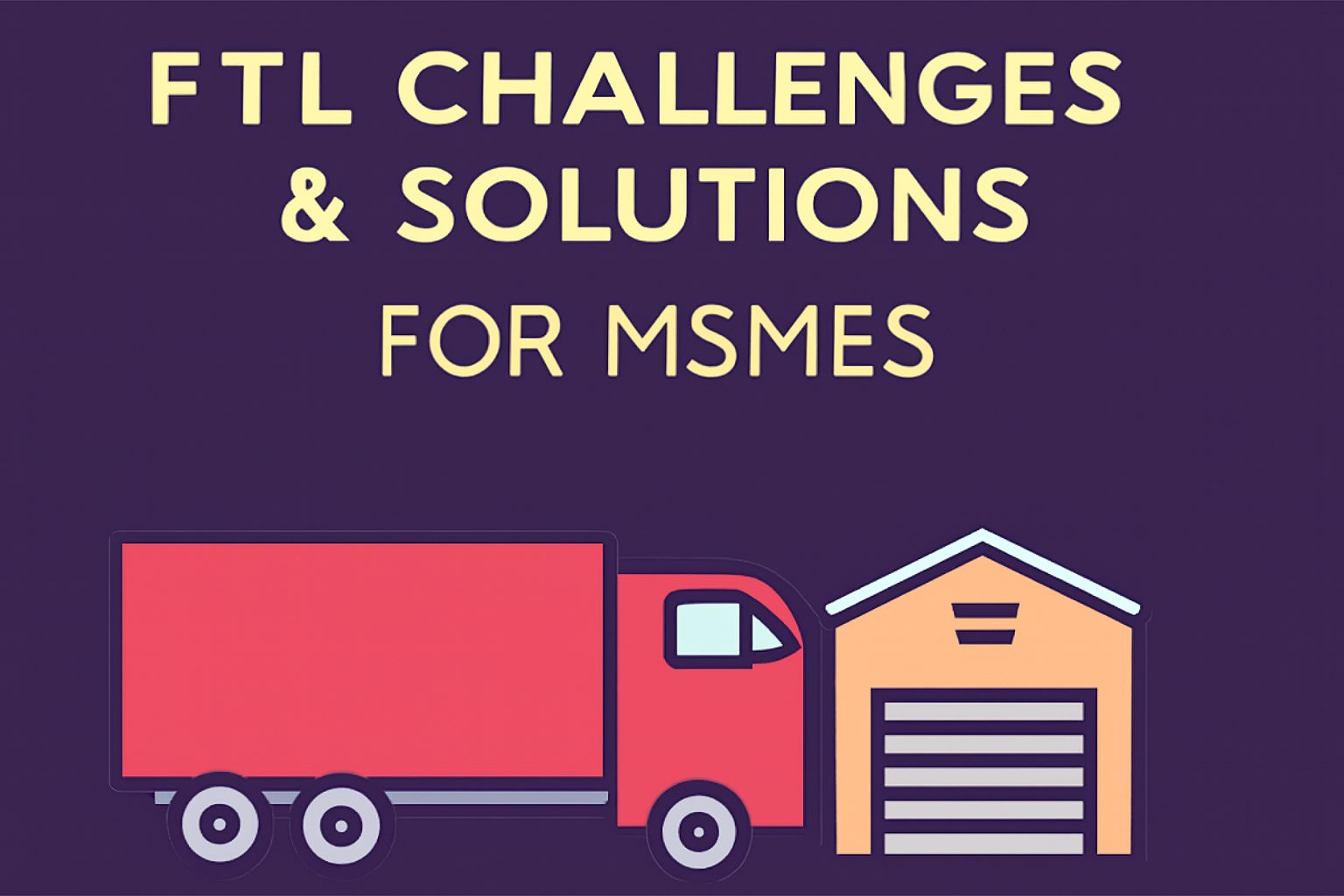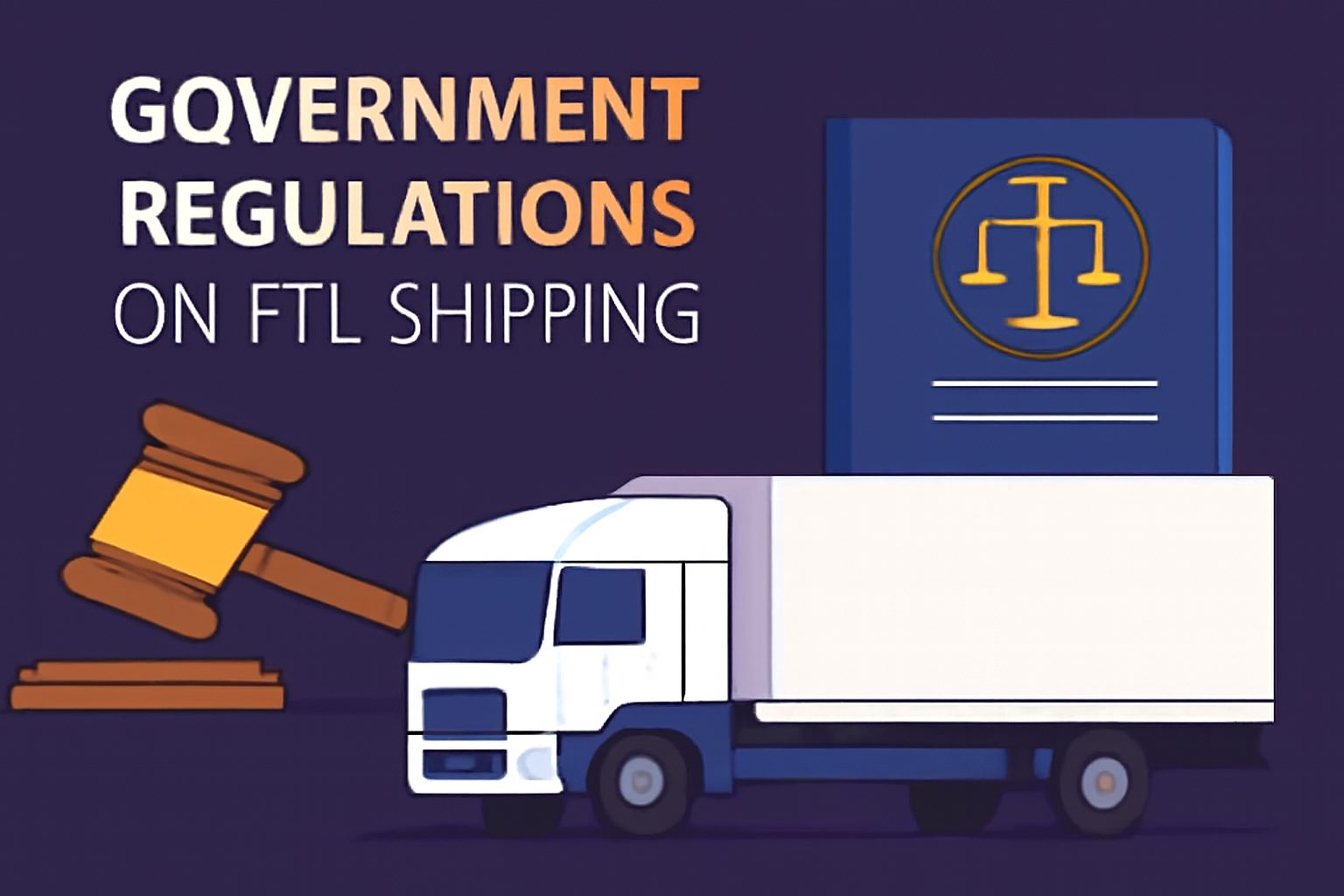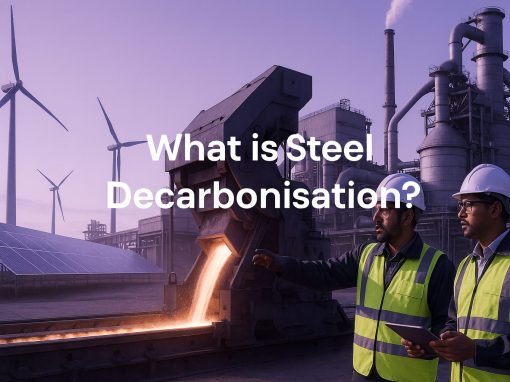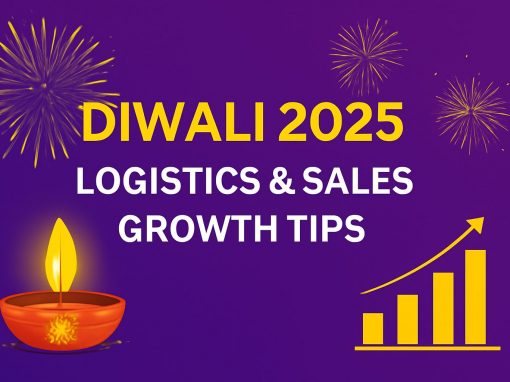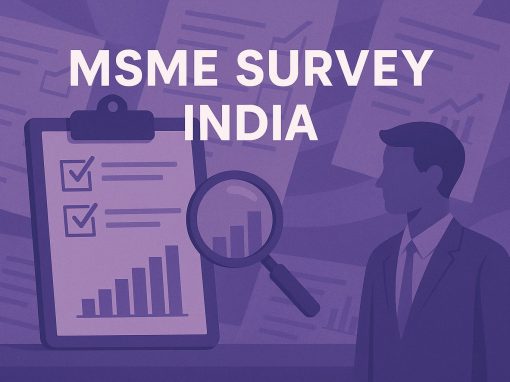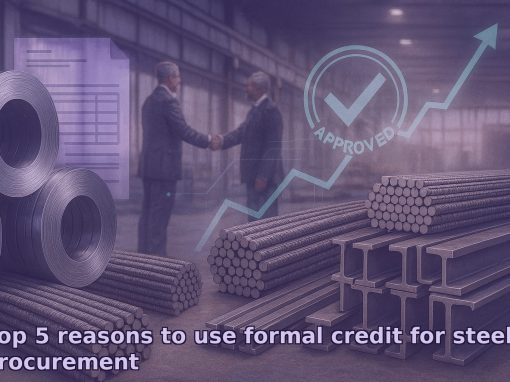Table of Contents
- Introduction
- Top FTL Service Providers in India
- How to Select the Right FTL Supplier for Your Business
- Benefits of FTL Logistics for MSMEs
- Common FTL Logistics Challenges and How to Overcome Them
- Impact of Government Regulations on FTL Shipping
- The Future of FTL Logistics for MSMEs in India
- Conclusion
Logistics plays a crucial role in the success of MSMEs (Micro, Small, and Medium Enterprises) in India. How can you, as a business, thrive in today’s market? It can be something as simple as optimising your logistics operations.
If you are looking for an efficient way to transport large volumes of goods quickly and securely, FTL is the way to go. With numerous FTL service providers in the market, choosing the right one is vital for ensuring timely deliveries and optimising costs. Understanding the benefits of FTL services, navigating common challenges, and staying updated on the trends shaping the future of FTL logistics are crucial too. Let us explore how you can make the most of FTL logistics for faster business growth.
Top 10 FTL Service Providers in India
eKart’s FTL services provide businesses with FTL trucks for heavy or bulk shipments, wide coverage, and better cargo security. With over 7,000 FTL trucks operating daily, eKart is efficient at handling both seasonal and regular business demands at affordable prices. They also offer Air B2B Express services for time-sensitive shipments.
Known for their extensive network, V-Xpress provides seamless connectivity across urban and rural regions, ensuring fast, secure, and cost-effective FTL transportation. Equipped with a modern logistics infrastructure, V-Xpress is adept at handling the varied demands of businesses across industries.
ABC Logistics is a leader in providing FTL services that focus on reliability and customer-centric solutions. Their FTL offerings include real-time tracking, route optimisation, and a fleet of modern trucks to ensure safe and timely delivery of goods. ABC Logistics is committed to supporting businesses with seamless logistics that is cost-saving, fast, and safe.
Scorpion’s FTL services focus on quality and enhanced security. They provide customised solutions for MSMEs from different industries. Scorpion’s FTL services emphasise safety, transparency, and a wide-reaching network, making them a reliable partner for companies in need of a robust logistics solution.
Delhivery is a tech-driven logistics company providing end-to-end FTL services to businesses. They are trusted FTL leaders with an impressive 99% on time delivery rating. Trusted by brands such as Amazon, P&G, and Reliance, they are reliable and provide added services such as RTO reduction tools, door-step inspection, and tracking.
Gati Express & Supply Chain Pvt. Ltd.
With over three decades of experience and a strong presence in both major cities and remote areas, Gati provides MSMEs with a seamless way to reach customers effectively. Their cutting-edge technology, real-time shipment tracking, and mobile app capabilities make them a suitable choice for MSMEs requiring flexible and scalable logistics solutions.
V-Trans is a viable option for MSMEs seeking personalised logistics services. They offer a wide range of FTL solutions, powered by a robust network, economical costs, and updated technology. Known for their strong regional presence, V-Trans is a reliable FTL partner for businesses in India.
While primarily known for express logistics, Blue Dart also provides efficient FTL services across India. Their secure and timely delivery solutions are beneficial for MSMEs requiring both express and bulk transportation services.
Transport Corporation of India (TCI)
With a vast network spanning over 40,000 locations, TCI offers comprehensive FTL services, including cold chain logistics and express cargo solutions. Their extensive fleet and infrastructure make them a reliable partner for MSMEs seeking nationwide coverage. In keeping with India’s sustainabiity goals for 2023, TCI’s fleet of FTL vehicles includes EVs, LNG and CNG-powered trucks.
Established in 1982 and operating primarily in South India, Navata provides reliable FTL services with a focus on timely deliveries and cost efficiency. Spread across a network of 668 brances in various states across Inida, Navata Road Transport is advantageous for MSMEs looking for dependable intra-state logistics solutions.
How to Select the Right FTL Supplier for Your Business
Selecting the right Full Truck Load (FTL) supplier is crucial. Doing so ensures smooth and cost-effective logistics operations for your business. A reliable FTL partner can significantly impact on your business’s efficiency, timely deliveries, and overall customer satisfaction.
With numerous options available, how does one decide on an ideal FTL provider? Listed below are some factors to consider when choosing an FTL transporter for your business.
Evaluate Reliability
Choose a supplier known for on-time deliveries and minimal damage. Check their track record for consistency and punctuality.
Assess Pricing Structure
Look for transparent pricing without hidden charges. Compare rates with other suppliers to ensure you get the best value.
Service Coverage
Ensure the supplier covers your key routes and locations, especially in regions critical to your operations.
Fleet Availability
Confirm that the supplier has a sufficient fleet size to handle your business’s transportation needs, even during peak times.
Customer Support
A supplier offering responsive customer service is always a better option than an unresponsive one. Quick resolution of issues and easy communication channels are essential.
Technology Integration
Check if they offer digital tracking and management tools. Technology integration simplifies order tracking and enhances transparency.
Flexibility in Scheduling
Choose a supplier that can accommodate your fluctuating load requirements. Flexibility in pickup times can reduce FTL shipment delays.
Safety Standards
Ensure the supplier follows safety protocols for both cargo and drivers. These practices reduce the risk of accidents and cargo damage.
Environmental Responsibility
Select a supplier with eco-friendly practices. Sustainable operations, such as fuel-efficient trucks, go a long way in helping reduce carbon footprint.
Industry Expertise
Look for suppliers with experience in your specific industry. They will better understand your needs and be able to provide services tailored to your business needs.
Value-Added Services
Choose suppliers that offer value-added services such as tracking, packaging, or warehousing. These services enhance operational efficiency and ensure you get your money’s worth.
Benefits of FTL Logistics for MSMEs
Full Truck Load (FTL) logistics offers several advantages for MSMEs. It can help streamline your supply chains and achieve cost-efficiency. Here are seven key benefits:
Cost Efficiency
With FTL, businesses pay for the entire truck, regardless of how much cargo they have. This can be more economical for larger shipments, as the cost is often lower compared to LTL (Less Than Truckload) services when shipping large volumes.
Faster Delivery Times
FTL shipments travel directly from the point of origin to the destination without any stops for other deliveries. This results in faster delivery times, ensuring that MSMEs can meet tight deadlines and satisfy customers more effectively.
Reduced Risk of Damage
Since the entire truck is dedicated to a single shipment, there is less handling of goods, which reduces the chances of damage during transit. This is especially important for sensitive or high-value products.
Greater Control Over Shipments
FTL allows for better control over the logistics process. Businesses can schedule pick-ups, track shipments in real-time, and ensure that delivery times align with their operational needs.
Increased Flexibility
FTL logistics offers more flexibility in terms of route customisation and delivery timings. MSMEs can tailor their logistics solutions to better fit their specific needs, improving overall efficiency.
Higher Capacity
FTL shipments can carry a larger volume of goods, making them ideal for businesses that regularly ship large quantities. This higher capacity reduces the need for multiple shipments, lowering overall transportation costs.
Improved Supply Chain Reliability
By using FTL services, MSMEs can enhance their supply chain reliability. Direct, non-stop deliveries reduce delays and disruptions, helping businesses maintain a steady flow of products and meet customer demands more effectively.
Common FTL Logistics Challenges and How to Overcome Them
While Full Truck Load (FTL) logistics offers numerous benefits, there are also challenges that MSMEs must address to maximise efficiency and minimise disruptions. Here are six common challenges and strategies to overcome them:
| Challenge | Solution |
|---|---|
| High Costs for Small Shipments | Description: FTL services can be cost-effective for large shipments, but for smaller loads, paying for an entire truck may not always be economical. Solution: MSMEs can consolidate shipments or look for partial truckload (PTL) options, where multiple businesses share the same truck. |
| Route Optimisation Issues | Description: Choosing the most efficient route for delivery can sometimes be challenging, leading to delays and increased fuel costs. Solution: Implementing GPS tracking and route optimization software can help identify the fastest and most cost-effective routes, ensuring timely deliveries. |
| Limited Flexibility in Delivery Times | Description: FTL shipments often have set schedules, which may not align with a business’s specific delivery needs, resulting in delays. Solution: Building strong relationships with FTL suppliers and negotiating flexible delivery windows can ensure that MSMEs get the timings that best suit their business needs. |
| Fuel Price Volatility | Description: Fluctuating fuel prices can significantly impact the overall cost of FTL shipping, making budgeting unpredictable. Solution: Many logistics providers offer fuel surcharges that help offset these fluctuations. Additionally, locking in long-term contracts or using more fuel-efficient vehicles can help manage costs. |
| Risk of Delays Due to External Factors | Description: FTL shipments can be delayed by external factors such as traffic, weather, or road closures, which are outside the control of both the supplier and the business. Solution: Partnering with reliable suppliers who provide real-time tracking and updates can help businesses stay informed about any potential delays and plan accordingly. |
| Capacity Management During Peak Seasons | Description: During peak demand periods, FTL suppliers may face capacity constraints, making it challenging for MSMEs to secure timely deliveries. Solution: MSMEs should plan for peak seasons, securing bookings early and discussing priority options with their FTL providers. These steps will help ensure the availability of trucks during high-demand periods. |
Impact of Government Regulations on FTL Shipping
Government regulations play a pivotal role in shaping FTL logistics in India, ensuring the smooth flow of goods across states and borders. These regulations can also impact the pricing of shipping FTL cargo. Here’s a look at some of these government regulations:
GST Compliance
Under the Goods and Services Tax (GST), FTL logistics providers must ensure proper tax invoicing and filing for every transaction. Compliance with GST is critical for avoiding penalties and ensuring smooth interstate transport.
Vehicle Permits and Route Approvals
FTL shipments often require specific permits for intercity and interstate transport. These regulations ensure that shipments are legally authorised to travel across state boundaries without delays.
Motor Vehicles Act
The Motor Vehicles Act regulates vehicle safety, driver working hours, and load limits. Transporters must adhere to these laws to ensure the safety of both the cargo and the drivers during transit.
E-way Bill Requirements
The government mandates the use of an E-way bill for the transportation of goods exceeding a certain value. It ensures proper documentation for goods in transit, reducing the risk of fraud, and enhancing tax transparency.
Environmental Regulations
Indian regulations increasingly require logistics companies to reduce carbon emissions and use eco-friendly vehicles. These policies drive the adoption of cleaner fuel options and better fuel efficiency within the FTL sector.
Customs and Documentation for Exports
For FTL shipments crossing international borders, customs documentation and compliance with export regulations are necessary. Adhering to these guidelines ensures smooth export processes and avoids customs delays.
The Future of FTL Logistics for MSMEs in India
The future of FTL logistics for MSMEs is being shaped by emerging trends that promise to enhance efficiency, sustainability, and customer satisfaction.
Sustainability is becoming a key focus, with businesses adopting eco-friendly practices such as fuel-efficient vehicles and optimising routes to reduce carbon footprints.
Automation is streamlining operations, from automated scheduling and route planning to warehouse management, reducing human errors and improving overall efficiency.
AI integration is playing a major role in predictive analytics for better demand forecasting, optimised load management, and real-time tracking.
These advancements will help MSMEs manage their logistics more effectively, cut costs, and provide faster, more reliable services. As these trends continue to evolve, MSMEs can expect more streamlined, cost-effective, and environmentally conscious logistics solutions.
Conclusion
Selecting the right FTL service provider is crucial for MSMEs looking to optimise their logistics and streamline operations. With a wide range of providers offering different strengths in coverage, cost efficiency, and reliability, it is essential to evaluate factors such as pricing, fleet size, and technology integration.
As the logistics landscape evolves, sustainability, automation, and AI integration will continue to shape the future of FTL services, benefiting MSMEs with faster and more efficient solutions. Partnering with the right FTL provider will ultimately enhance customer satisfaction and help your business stay competitive in a fast-moving market.
Need reliable logistics solutions for your business?
Tata nexarc helps businesses streamline their supply chain with trusted transporters, competitive pricing, and real-time tracking—ensuring timely and cost-effective delivery across India.
FAQs
FAQ title
What is Full Truck Load (FTL) logistics?
How does FTL benefit MSMEs in India?
What is the difference between FTL and LTL shipping?
What are the top FTL service providers for MSMEs in India?
How do I choose the right FTL provider for my business?
What common challenges do MSMEs face with FTL logistics?
Are FTL services cost-effective for small shipments?
How do government regulations affect FTL shipping in India?
What technological advancements are shaping FTL logistics?
What does the future of FTL logistics look like for MSMEs?
A product manager with a writer's heart, Anirban leverages his 6 years of experience to empower MSMEs in the business and technology sectors. His time at Tata nexarc honed his skills in crafting informative content tailored to MSME needs. Whether wielding words for business or developing innovative products for both Tata Nexarc and MSMEs, his passion for clear communication and a deep understanding of their challenges shine through.
